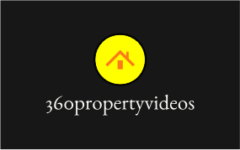Managing rental properties can be both a profitable and challenging venture. Whether you own a single unit or a large portfolio, effective management is key to maintaining your investments and ensuring a steady income stream. This article covers essential strategies for managing rental properties to help you keep your tenants satisfied, your property in top shape, and your investment performing well.
Tips for Managing Rental Properties
Understand Your Legal Obligations
Before you begin managing rental properties, it’s crucial to understand your legal responsibilities. Familiarize yourself with local landlord-tenant laws, which cover everything from lease agreements to eviction procedures. Knowing your legal obligations helps avoid disputes and ensures you’re providing a fair and compliant rental experience.

Screen Tenants Carefully
One of the most important aspects of managing rental properties is finding the right tenants. Conduct thorough background checks, including credit history, criminal records, and rental history. A well-screened tenant is more likely to pay rent on time and take care of the property, reducing potential issues down the line.
Set Clear Lease Terms
A well-drafted lease agreement is essential for managing rental properties effectively. Clearly outline the rent amount, due dates, security deposit details, maintenance responsibilities, and any rules or restrictions. A clear lease helps prevent misunderstandings and provides a solid foundation for handling disputes if they arise.
Keep Up with Property Maintenance
Regular maintenance is a key part of managing rental properties. Schedule routine inspections and address repairs promptly to keep the property in good condition. By staying on top of maintenance tasks, you not only ensure tenant satisfaction but also protect the long-term value of your investment.
Handle Rent Collection Efficiently
Efficient rent collection is crucial for managing rental properties smoothly. Offer multiple payment options, such as online payments or direct deposits, to make it easy for tenants to pay on time. Consider implementing a late fee policy to encourage timely payments and reduce the risk of late rent.
Provide Excellent Customer Service
Maintaining good relationships with your tenants can make managing properties much easier. Be responsive to tenant requests and address concerns promptly. Good customer service fosters a positive living environment and can lead to longer lease terms and fewer vacancies.
Implement Effective Marketing Strategies
When a rental property becomes vacant, effective marketing is essential to find new tenants quickly. Use online listings, social media, and local advertising to reach potential renters. High-quality photos and detailed descriptions can attract more interest and help you fill vacancies faster.
Use Technology to Your Advantage
Leverage technology to streamline property management tasks. Property management software can help with rent collection, maintenance tracking, and tenant communication. Utilizing these tools can save time and reduce the administrative burden of managing properties.
Keep Detailed Records
Accurate record-keeping is crucial for managing properties effectively. Maintain detailed records of rent payments, expenses, repairs, and communication with tenants. Keeping organized records helps with financial planning, tax reporting, and resolving disputes.
Stay Informed About Market Trends
Understanding the local real estate market can give you an edge in managing properties. Stay informed about market trends, rental rates, and property values to make informed decisions about pricing, upgrades, and investments. Knowledge of the market helps you stay competitive and maximize your property’s potential.
Conclusion
Managing rental properties involves a range of responsibilities, from understanding legal requirements to maintaining tenant satisfaction. By carefully screening tenants, setting clear lease terms, and staying on top of property maintenance, you can ensure your investments remain profitable. Effective rent collection, excellent customer service, and smart use of technology further enhance your property management efforts. Keeping detailed records and staying informed about market trends helps you make informed decisions and maintain a successful rental business. Implementing these strategies for managing rental properties will help you create a smooth and successful property management experience.

